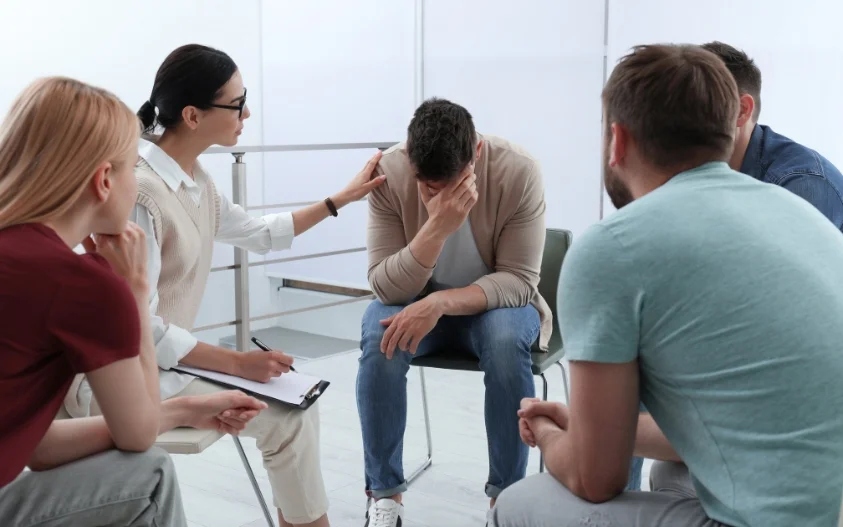24/7 Helpline:
(866) 899-221924/7 Helpline:
(866) 899-2219
Learn more about PTSD Treatment centers in Scotts Bluff County
Other Categories in Scotts Bluff County

Other Insurance Options

Aetna

Amerigroup

Medical Mutual of Ohio

BlueShield

Lucent

Ambetter

WellPoint

Self-pay options

MHNNet Behavioral Health

Humana

Highmark

UMR

Oxford

Meritain

Providence

United Health Care

PHCS Network

UnitedHealth Group

Health Partners

BHS | Behavioral Health Systems












































AA – Alcoholics Anonymous – Broadway
AA – Alcoholics Anonymous – Broadway is a non-profit rehab located in Scottsbluff, Nebraska. AA – Al...

Panhandle Substance Abuse Council
Panhandle Substance Abuse Council is a private rehab located in Scottsbluff, Nebraska. Panhandle Sub...

Panhandle Health Group
Panhandle Health Group has been serving the western Nebraska community since 1969. Panhandle Health ...

Human Services – Detox
Human Services – Detox is a private rehab located in Scottsbluff, Nebraska. Human Services – Detox s...

El Milagro Del Siglo – Hispano
El Milagro Del Siglo – Hispano is a private rehab located in Scottsbluff, Nebraska. El Milagro Del S...

AA – Alcoholics Anonymous
AA – Alcoholics Anonymous is a non-profit rehab located in Scottsbluff, Nebraska. AA – Alcoholics An...

AA – Alcoholics Anonymous – New Hope Group
AA – Alcoholics Anonymous – New Hope Group is a non-profit rehab located in Scottsbluff, Nebraska. A...



























